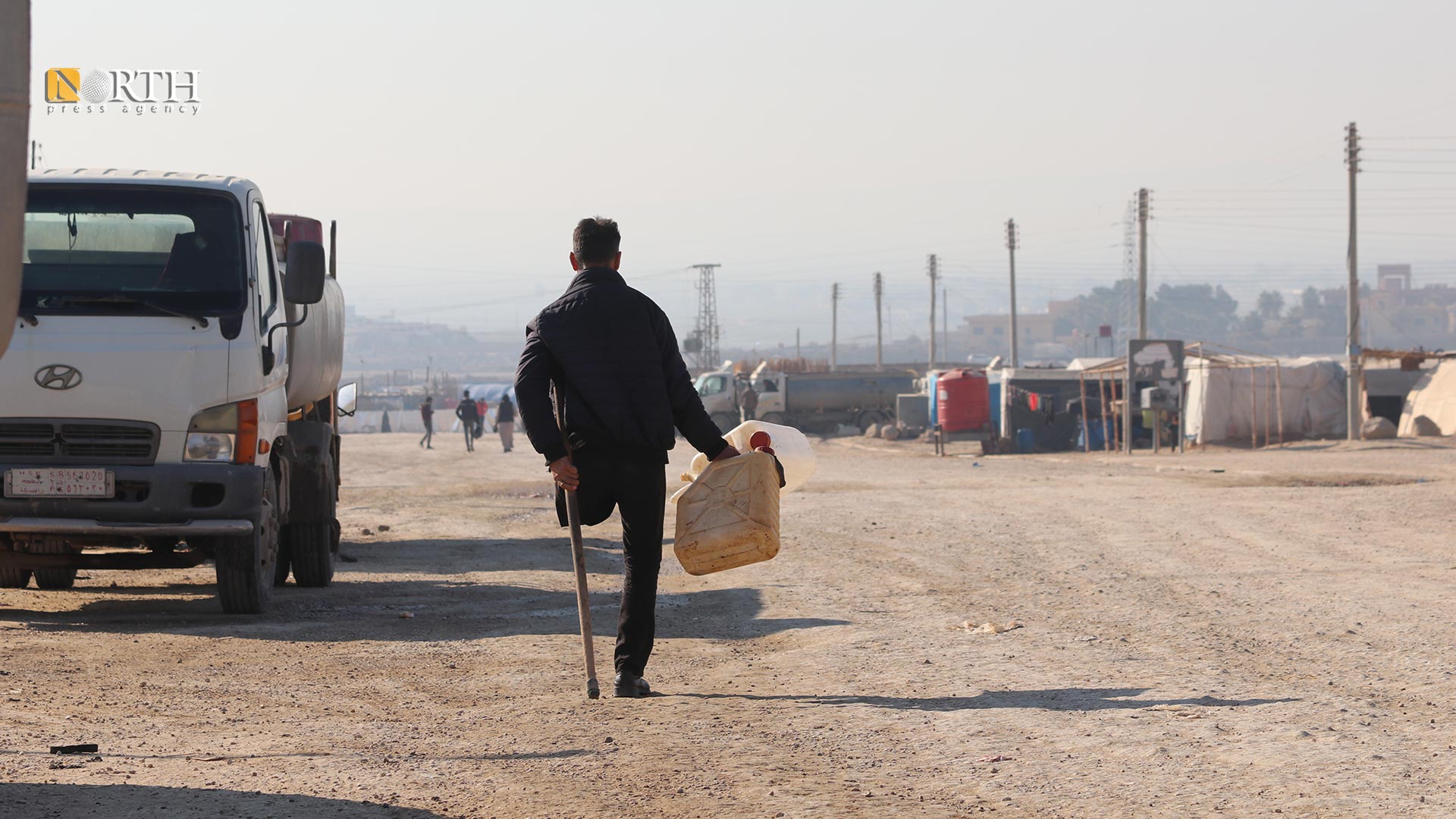AANES warns of crisis if al-Yar’ubiyah border crossing remains closed
HASAKAH, Syria (North Press) – The IDPs and Refugees Department of the Autonomous Administration of North and East Syria (AANES) warned on Monday that the continued closure of the al-Ya’rubiyah(Tel Kocher) border crossing would lead to health and humanitarian crises.
The Tel Kocher border crossing is the sole entry point for humanitarian aid in north and east Syria region. It was closed in early 2020 as a result of vetoes by both Russia and China in the UN Security Council.
Sheikhmous Ahmad, an official with the AANES IDPs and Refugees Department, told North Press that the ongoing closure of the Tel Kocher border crossing with Iraq is having a detrimental effect on the situation in local camps and shelters.
Humanitarian aid that arrives in the region through Syrian government-held areas is sold in local markets and reaches very few people, Ahmad added, accusing the Syrian government of exploiting their control over UN aid in order to pressure the AANES.
The IDPs in the camps run by the AANES are plagued by dire living conditions, which are compounded by the ongoing closure of Tel Kocher crossing.
The Sere Kaniye and Washokani camps near Hasakah – home to around 20.000 people displaced by Turkey’s 2019 invasion – are not officially recognized by the UN.
In October 2019, the Turkish forces and their affiliated armed opposition factions, known as the Syrian National Army (SNA), launched a military operation against Tel Abyad and Sere Kaniye cities.
The operation was named “Peace Spring” and led to the occupation of the two cities and their countryside in addition to the displacement of more than 300.000 of the original inhabitants.
Ahmad added that the latest meeting between Syria and Turkey, under Russia’s auspices, would result in Russia’s continued pressure on the UN Security Council (UNSC) to keep the border crossing closed.
He demanded that the UN and its Security Council open the border crossing so that aid can be delivered to the people in need, similar to those in other parts of Syria.
In July 2014, the UNSC adopted Resolution 2165 which authorized the UN to deliver cross-border humanitarian aid to Syria through four crossings al-Ramtha crossing with Jordan, Bab al-Salameh and Bab al-Hawa with Turkey, and Tel Kocher with Iraq, without the consent of the Syrian government.
Since July 2020, Bab al-Hawa has been the only crossing kept open to UN aid based on Resolution 2533 (2020), while the use of the others was curtailed.
In July 2022, the UNSC approved extending lifesaving aid deliveries into northwest Syria through the Bab al-Hawa crossing for six months.
At the time, 12 countries voted in favor of the resolution, while the US, Britain and France abstained.
Recently, Russia hinted at the possibility of extending the mechanism.
The extension resolution needs 9 votes out of 15 of the council’s members, without a veto by Russia, China, France, Britain, or the US.
Most of the UNSC members and the UN Secretariat support the cross-border aid mechanism, stressing that it is an essential tool for humanitarian efforts in Syria.

